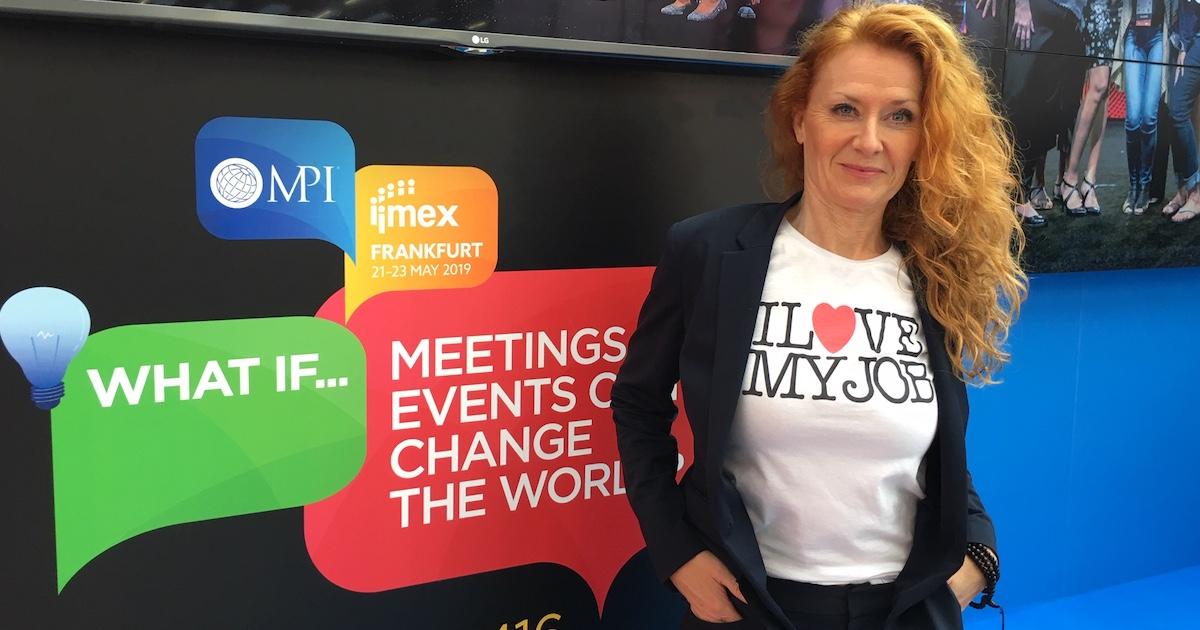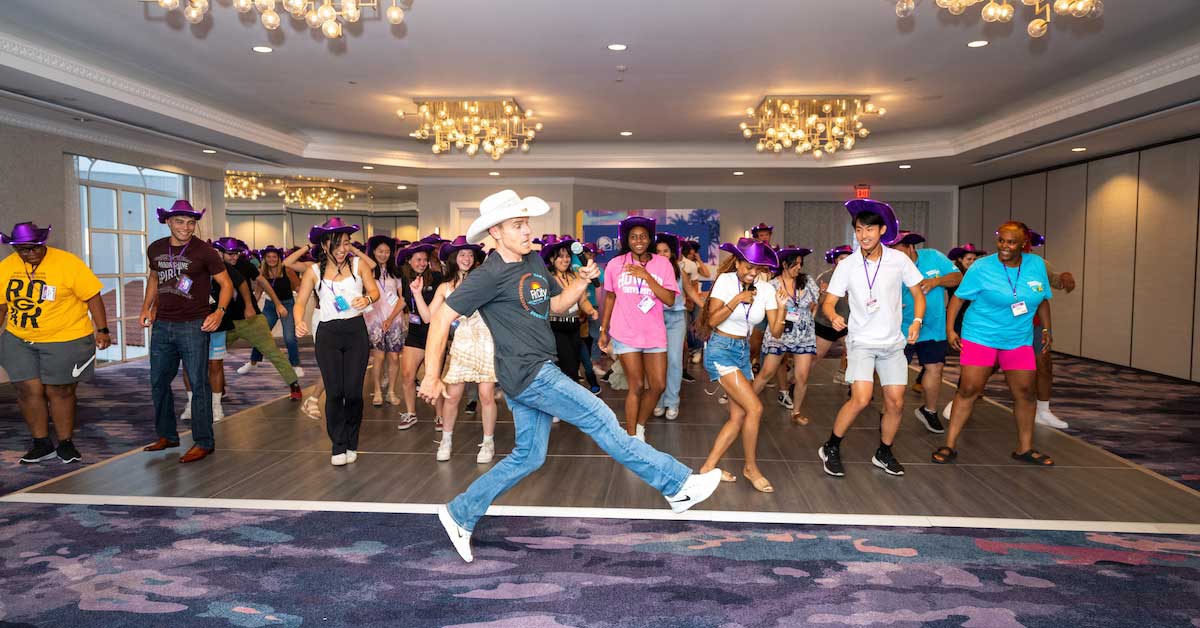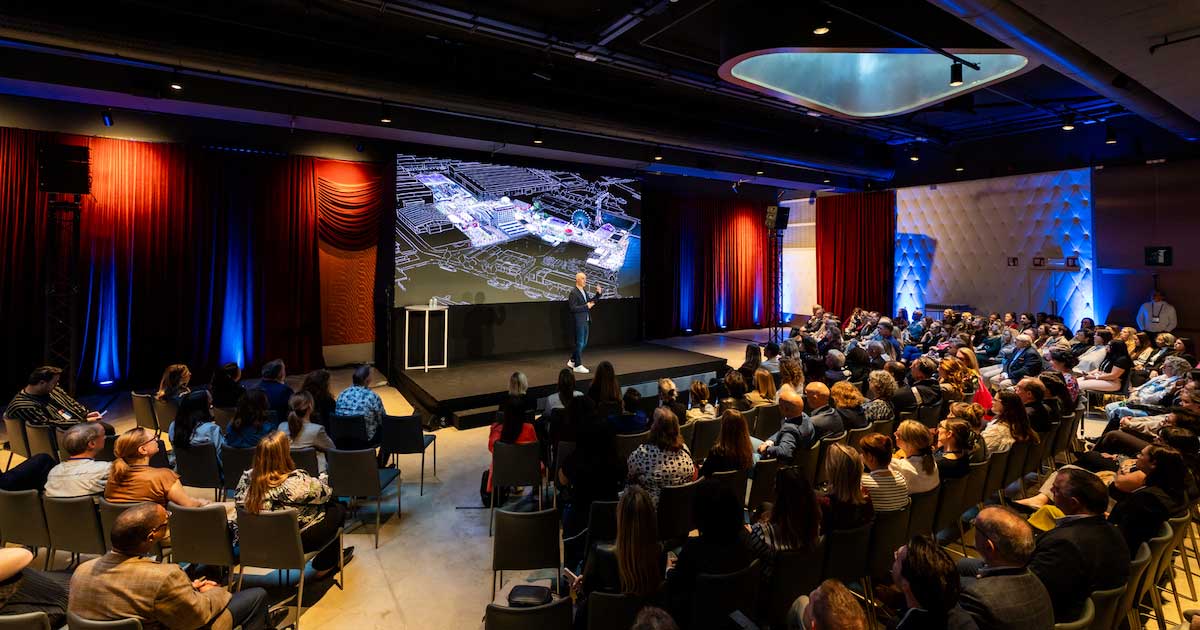This year’s IMEX Talking Point theme is “imagination.” International facilitator and MPI Denmark Chapter member Majbritt Sandberg explains how opening your mind to possibilities can lead to amazing events. Sandberg, of Red Lab Experience, is an international facilitator and speaker with a background in learning and design thinking. She is presenting at IMEX in Frankfurt.
How can imagination help us create better events and ultimately better organizations?Imagination has always been a focal point of my work. I started my career working with Disney and that meant that I could nurture my curious side and explore fun, new ideas. By using your imagination, you fuel creativity, not only for yourself but for your team as well. Other clients are not always as adventurous as Disney, but to create better events, we need to broaden our perspective. I use the phrase ‘what if.’ This opens up discussions because what if we use a little imagination, be bold in our thinking to open our mindset and initiate new thinking? That will inevitably lead to better events and ultimately better organizations.
Many organizations now talk about the power of collaboration to transform. How can we be better at collaborating?
We live in a culture where everything is built on constant interaction. We work in teams, so we have to collaborate. If you look at the 21st century learning skills, collaboration is on the top of the list, so it is a skill that needs to be nurtured in many ways. To be successful at collaboration, you need to be aware of the many dynamics that can affect collaboration. Often group activities and brainstorms mean thinking out loud, which favors the extroverts and the outspoken. At IMEX at the Red Lab, we talk about the power of introverts and how using silent co-creation can be crucial in strengthening collaboration skills.
One of your sessions is on social learning. Why is it increasingly important?
In our definition, social learning is learning with and from others. Learning from others and sharing and gaining knowledge from peers is not a new thing. However, the way people learn has changed dramatically since the introduction of social media and increasingly social interaction. Platforms like LinkedIn, Facebook and Twitter have a huge impact in our daily lives and we feel that using social learning and having a strategy for this will engage the learning skills and have a positive impact in every organization.
Technology is transforming the way we live and work, but how do we stop it from dictating to us, and how do we use it effectively?
Just as you need a strategy for social learning, you also need to have a strategy for using technology efficiently. Project management is a really good example. On the market, there are a lot of tools and platforms that are very effective and can handle complex projects across organizations. However, many teams insist on using emails simply because it is easier and you do not have to learn something new. To use technology to our advantage in the future, we might have to step into the discomfort of learning something new to get the benefits.
You talk of the attention economy. How can we win the attention of those we most need to communicate with?
Attention is a very scarce resource. I think we all know the feeling of sitting at a conference and suddenly we get distracted. As a meeting planner or venue, you need to win the fight for attention when it comes to your participants and it will require changing some of the habits we have when organizing the next event or conference. We need to make learning personal and involve more senses to have a positive impact. Telling compelling stories is an essential tool to use to connect and interact better, and to listen and engage better. All these are important ingredients for getting attention and keeping it. People relate to stories, not facts.







